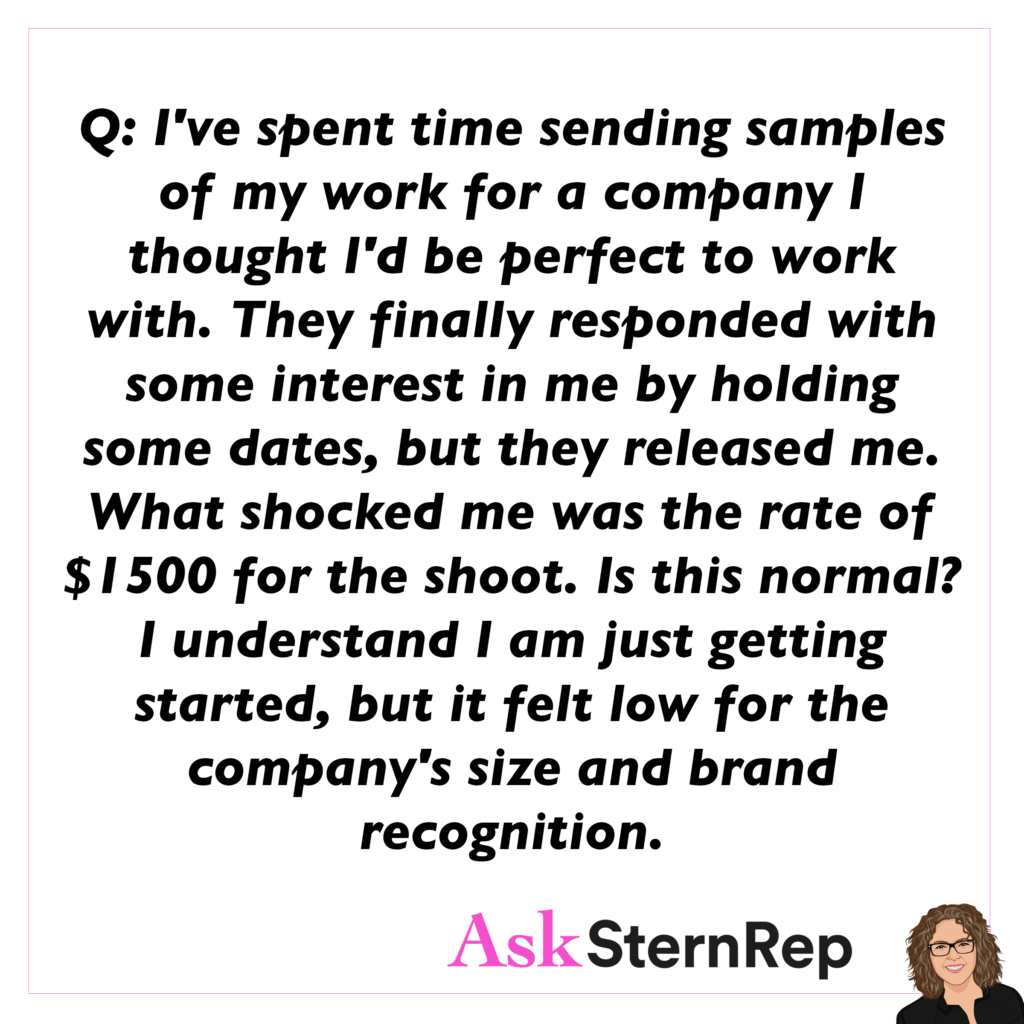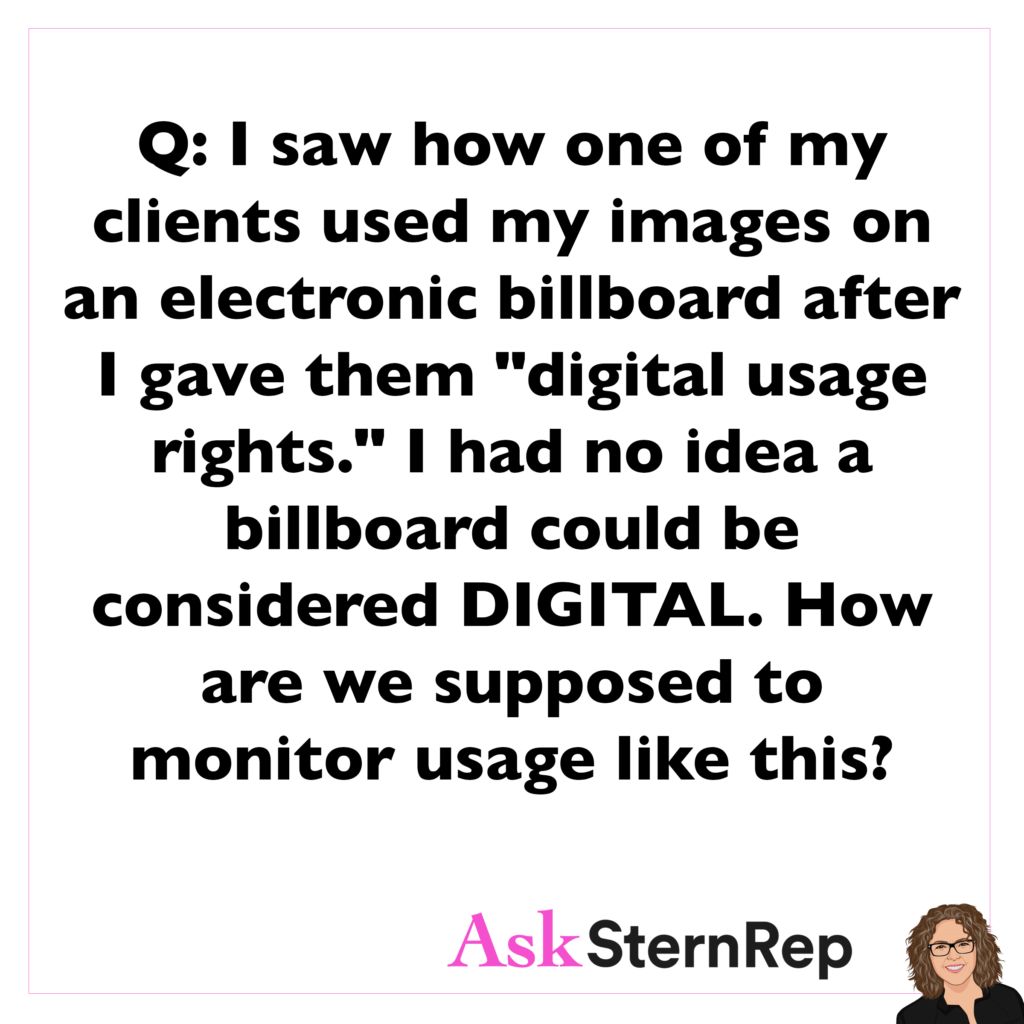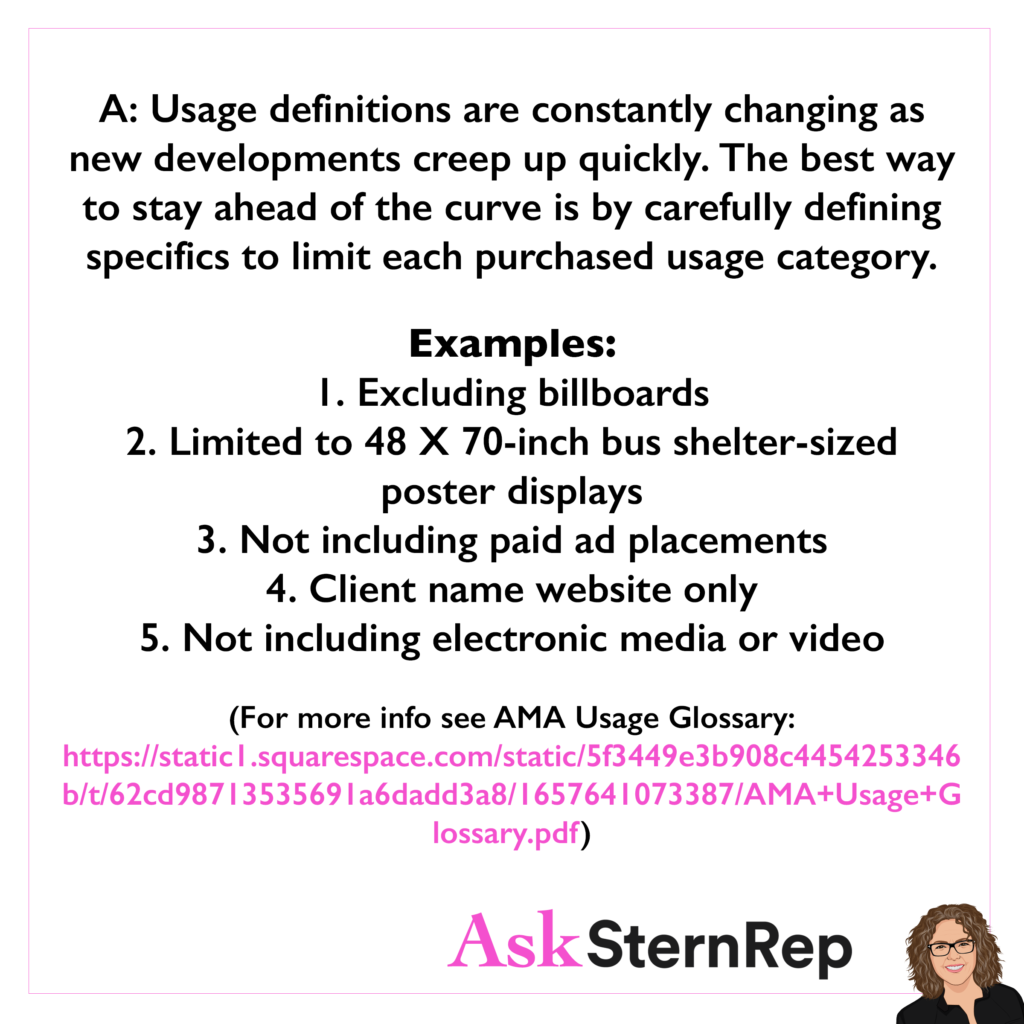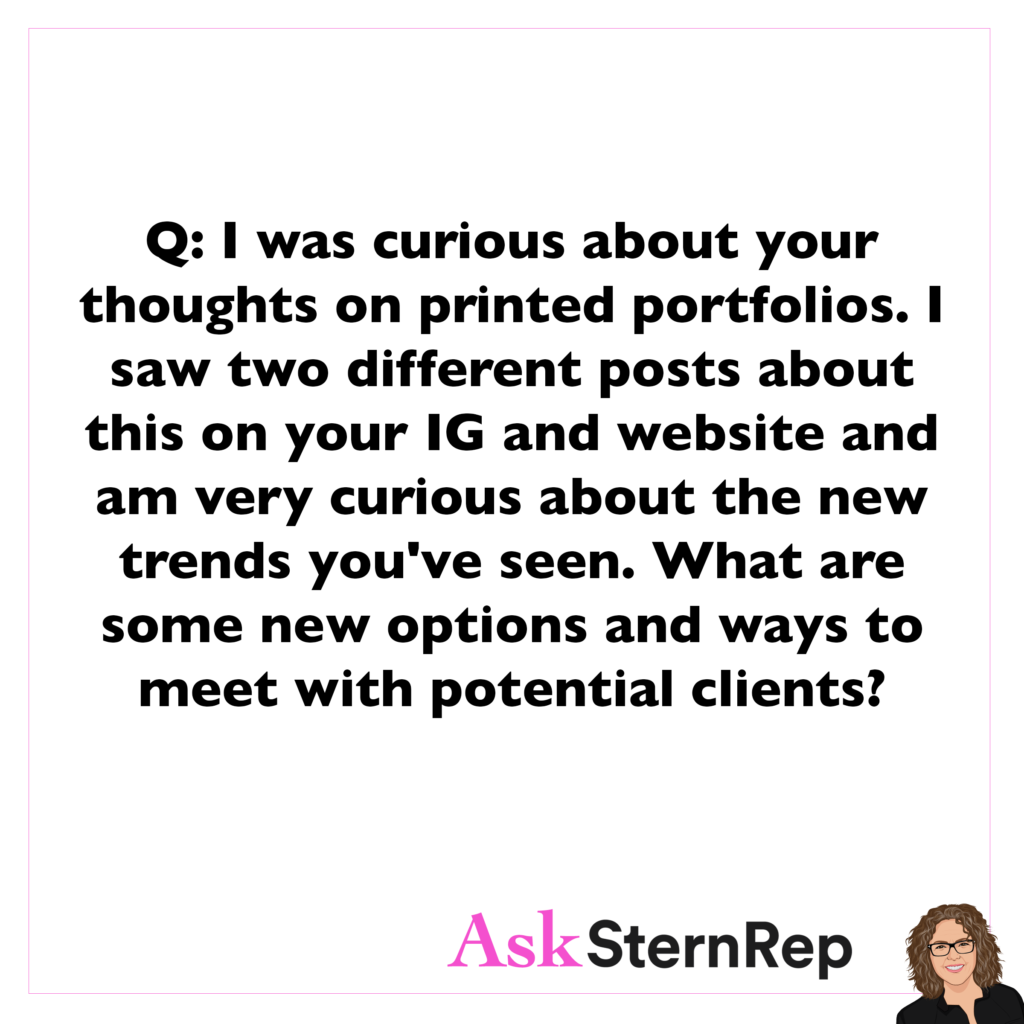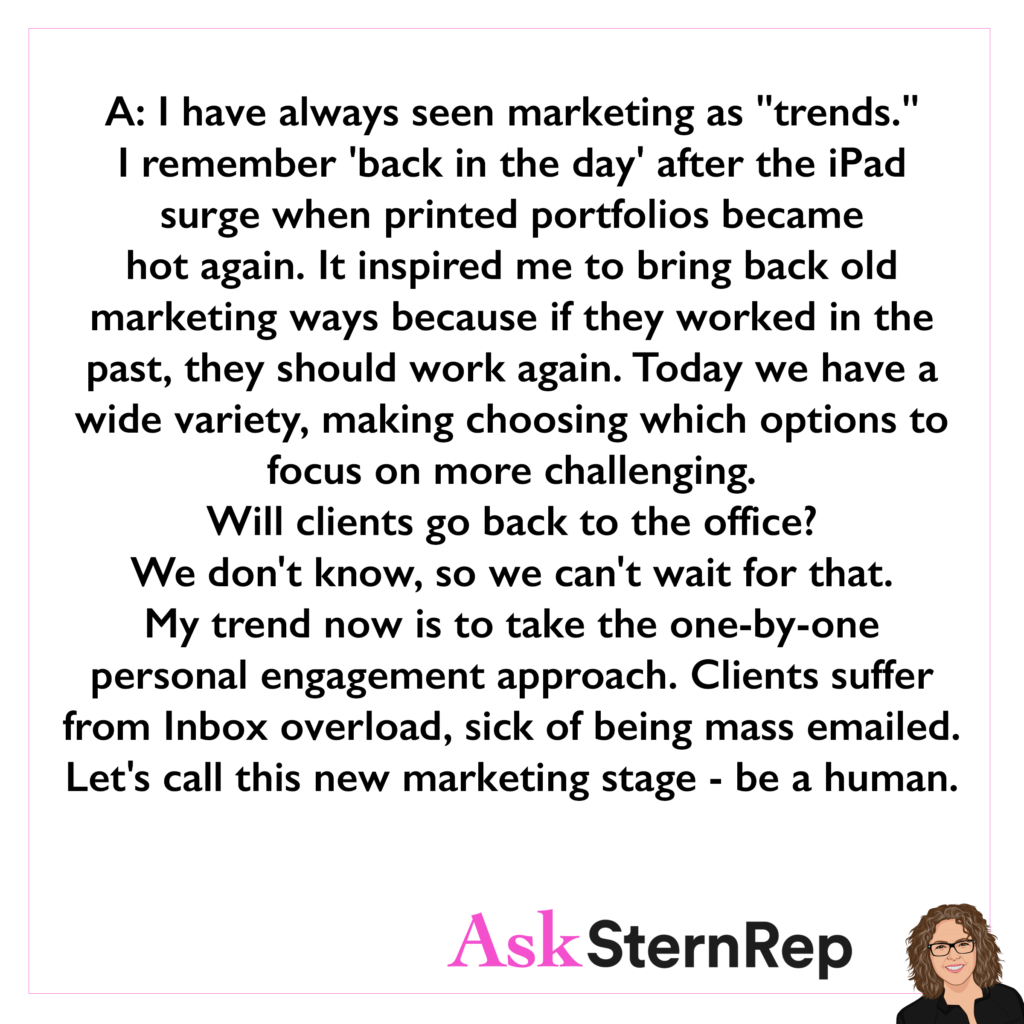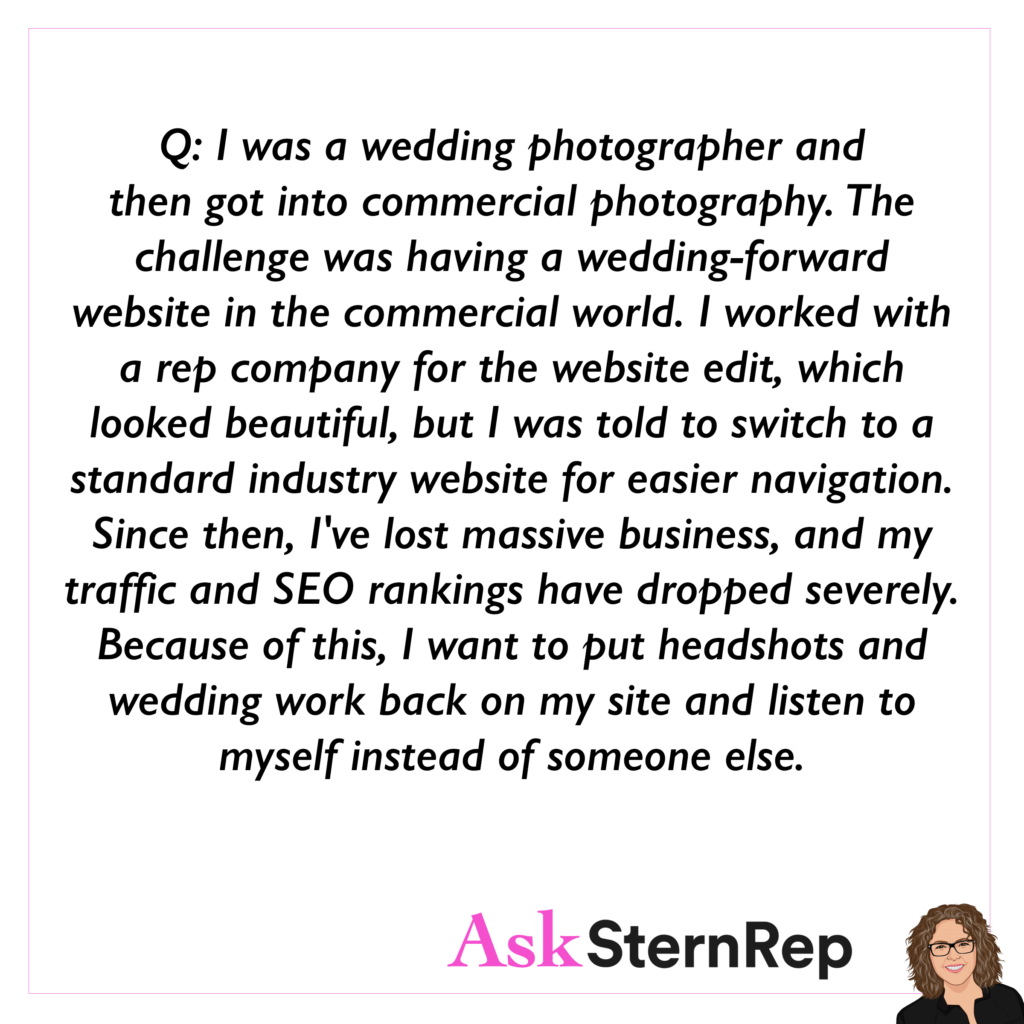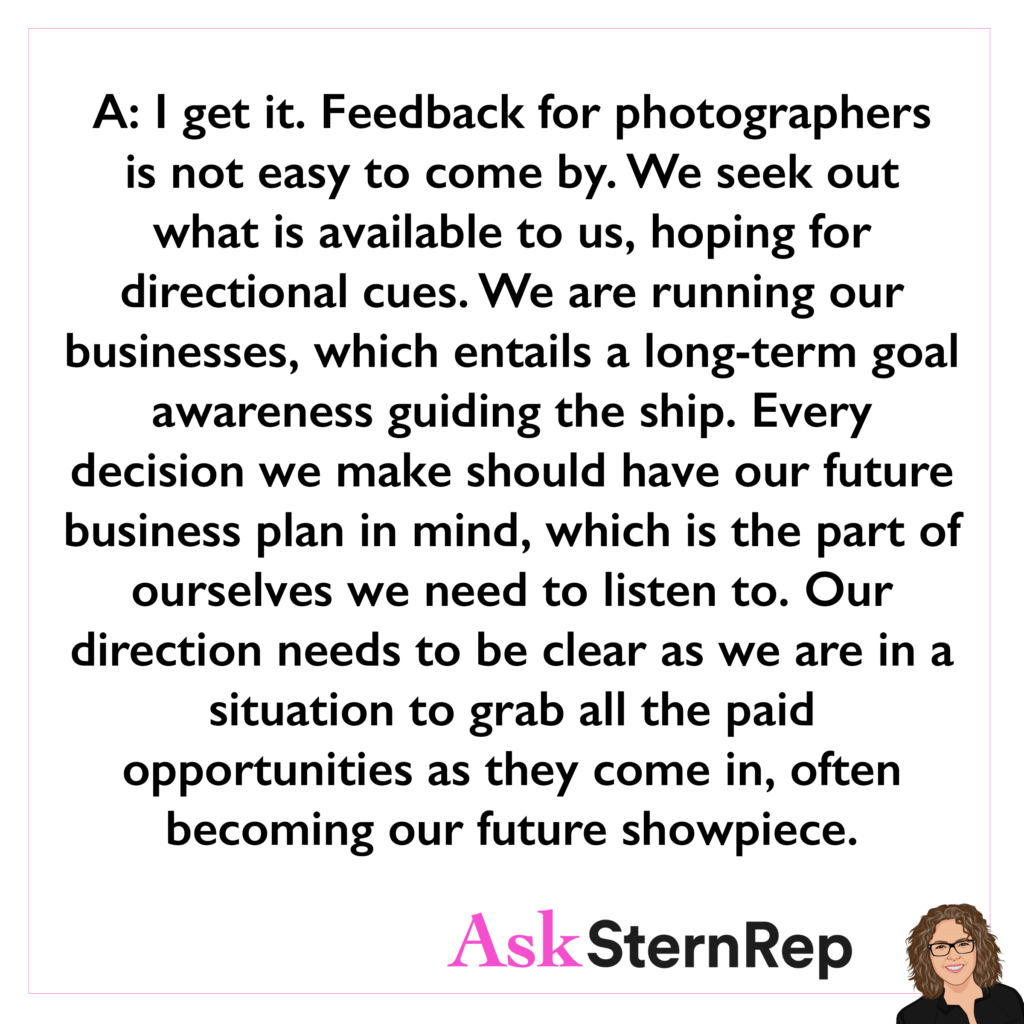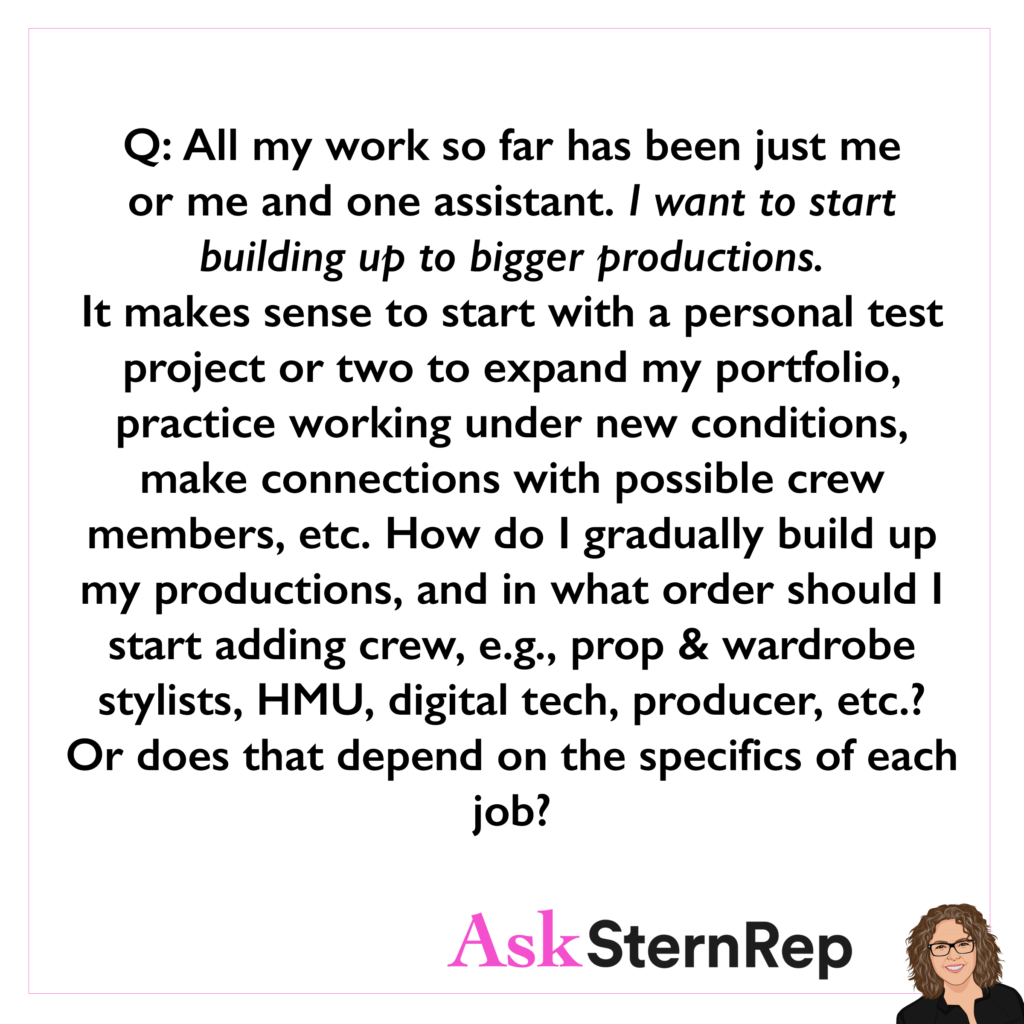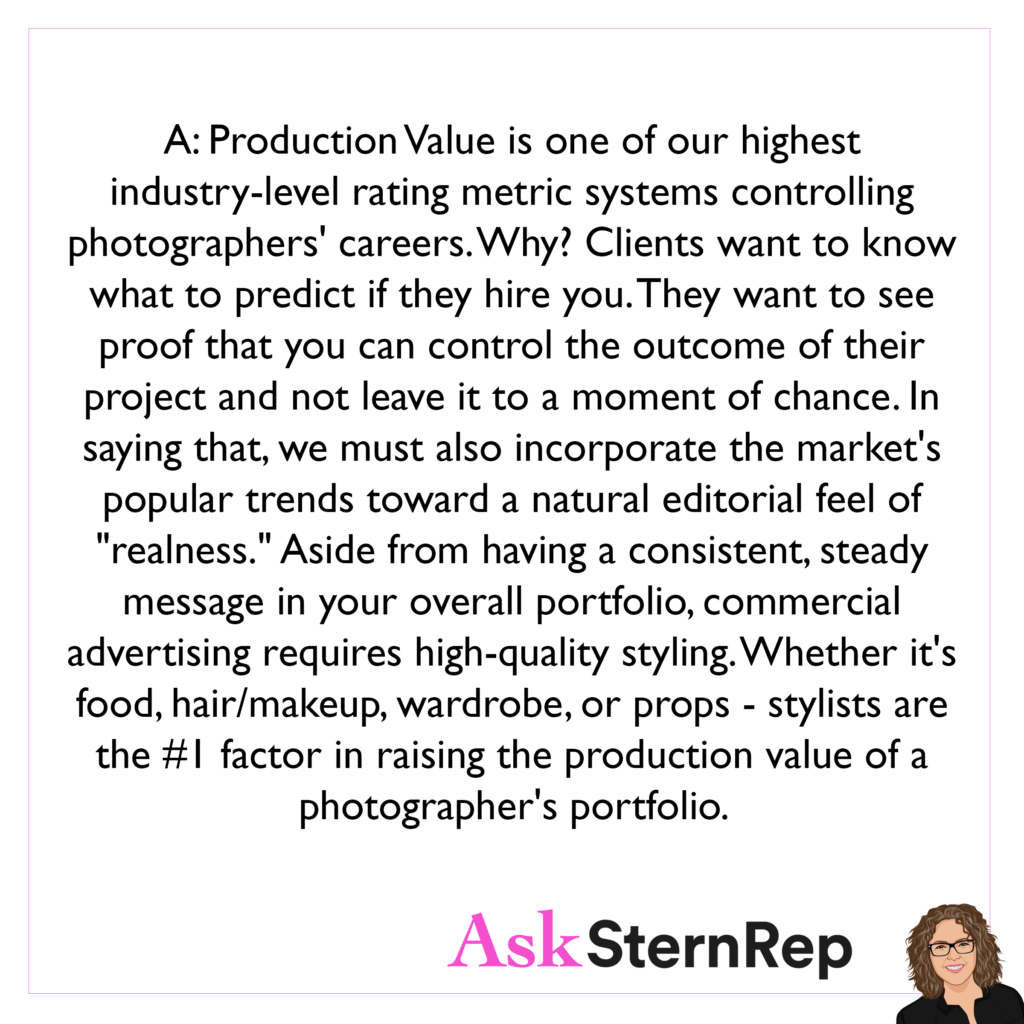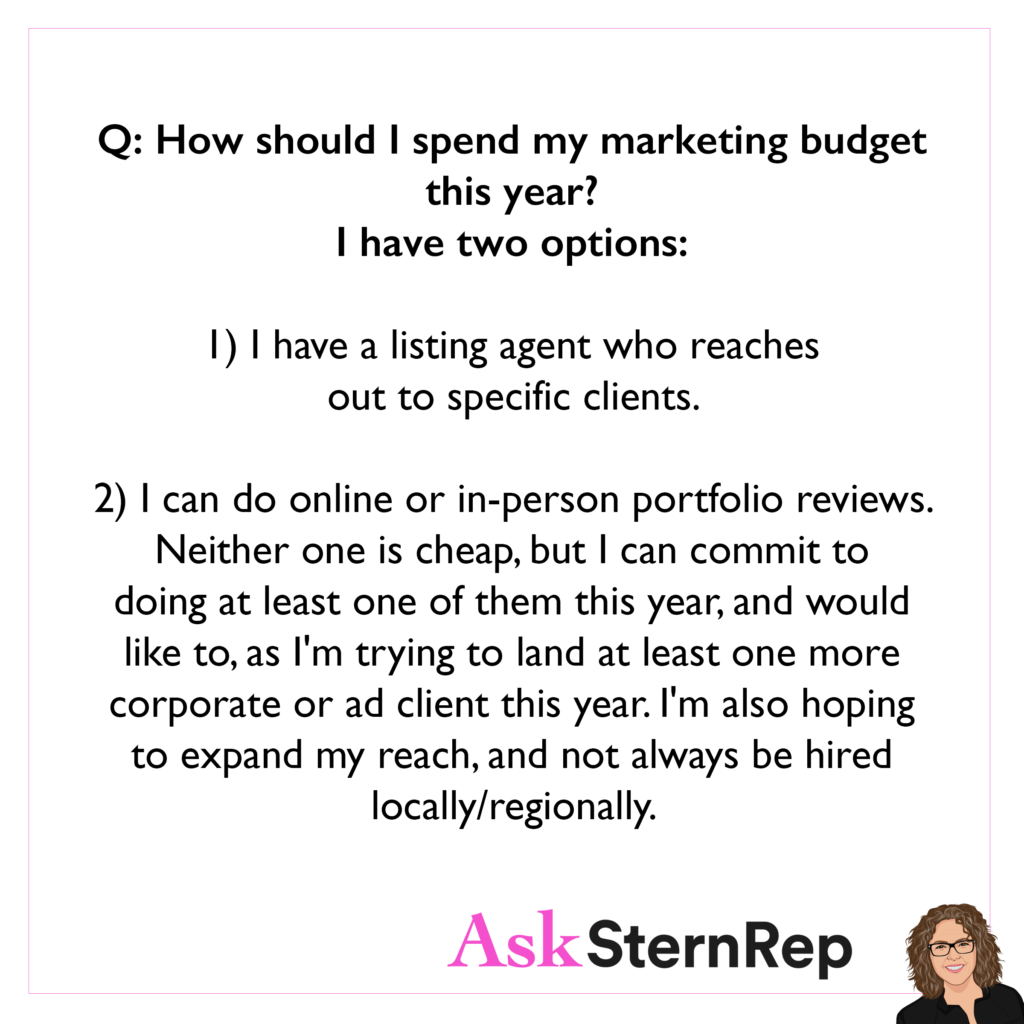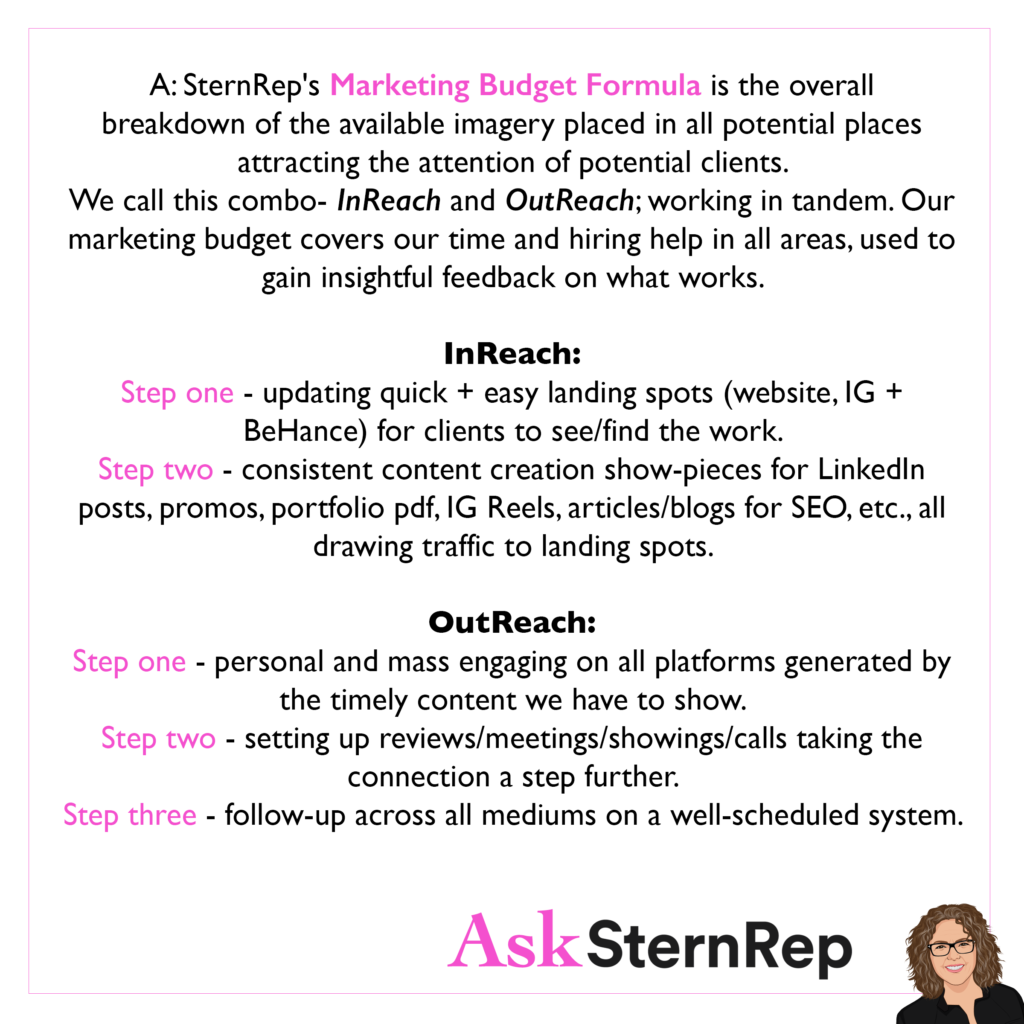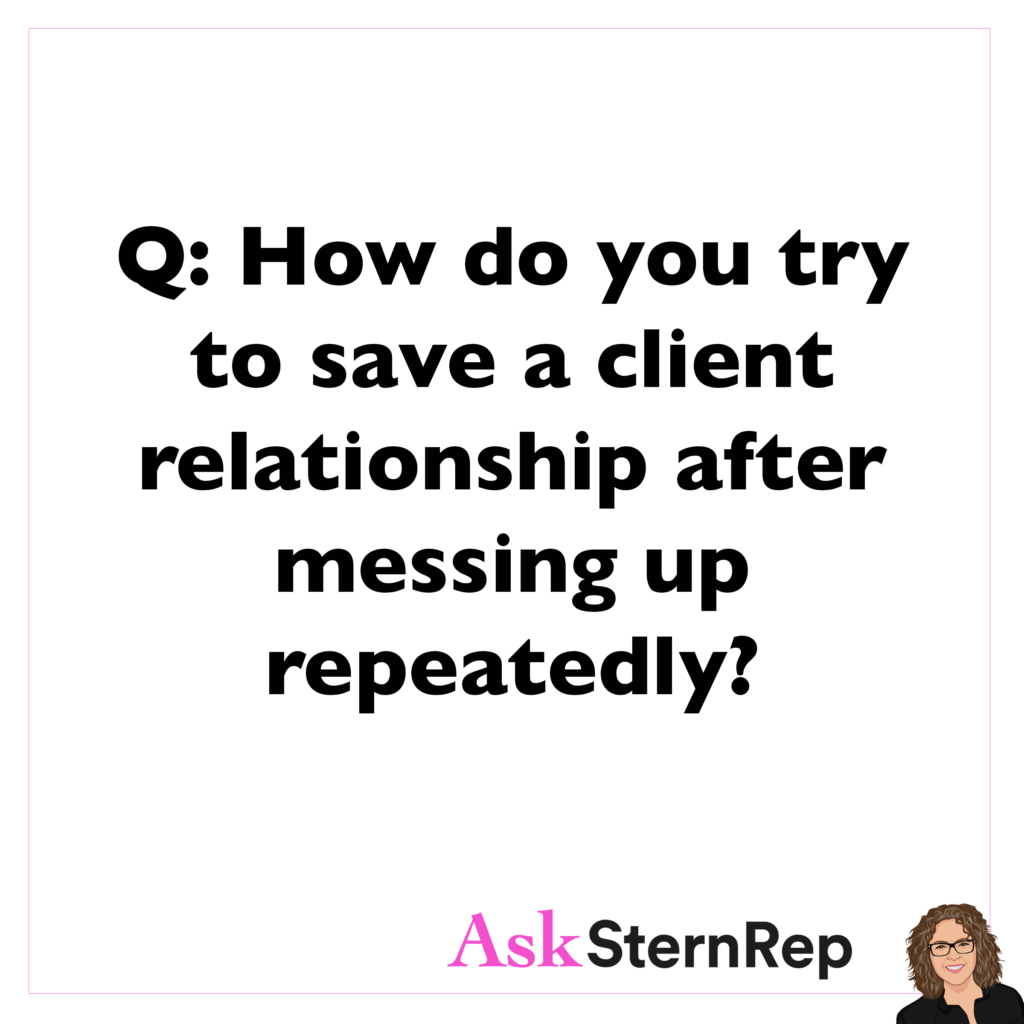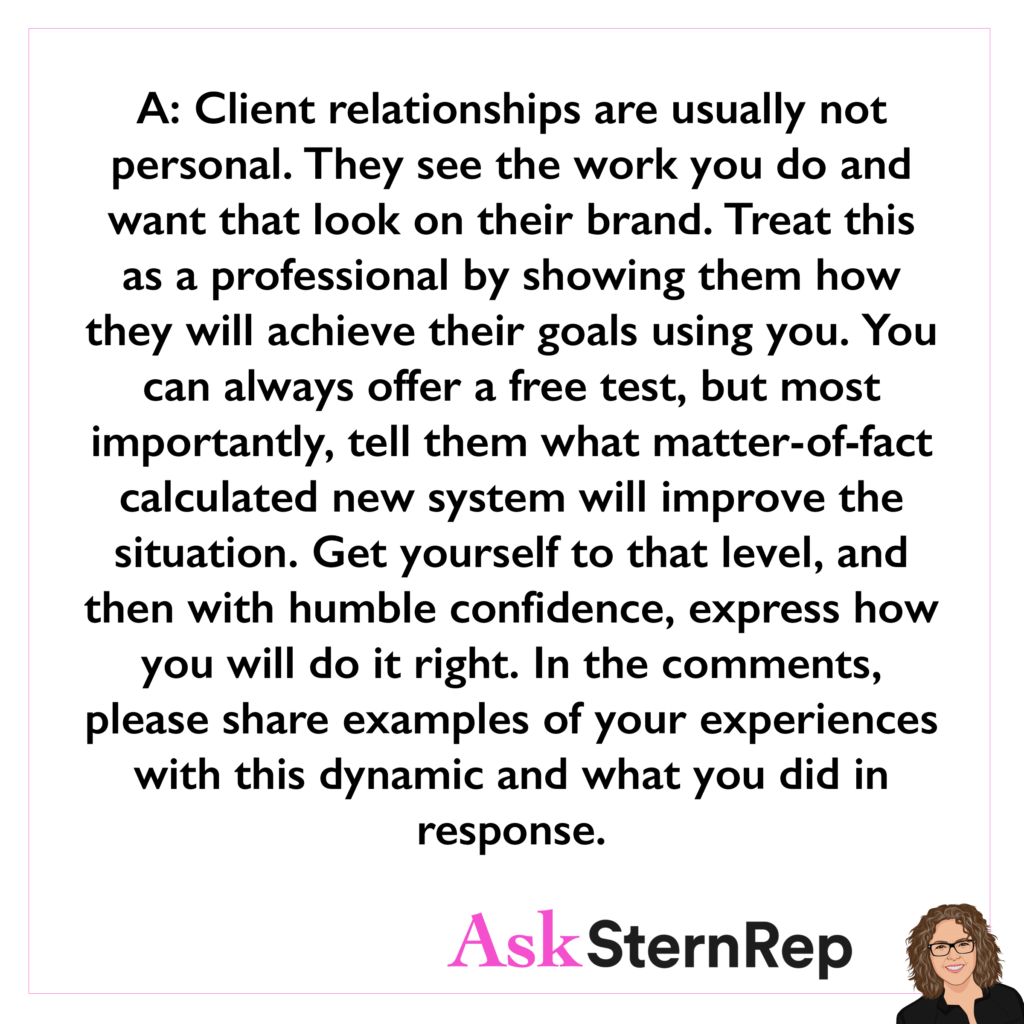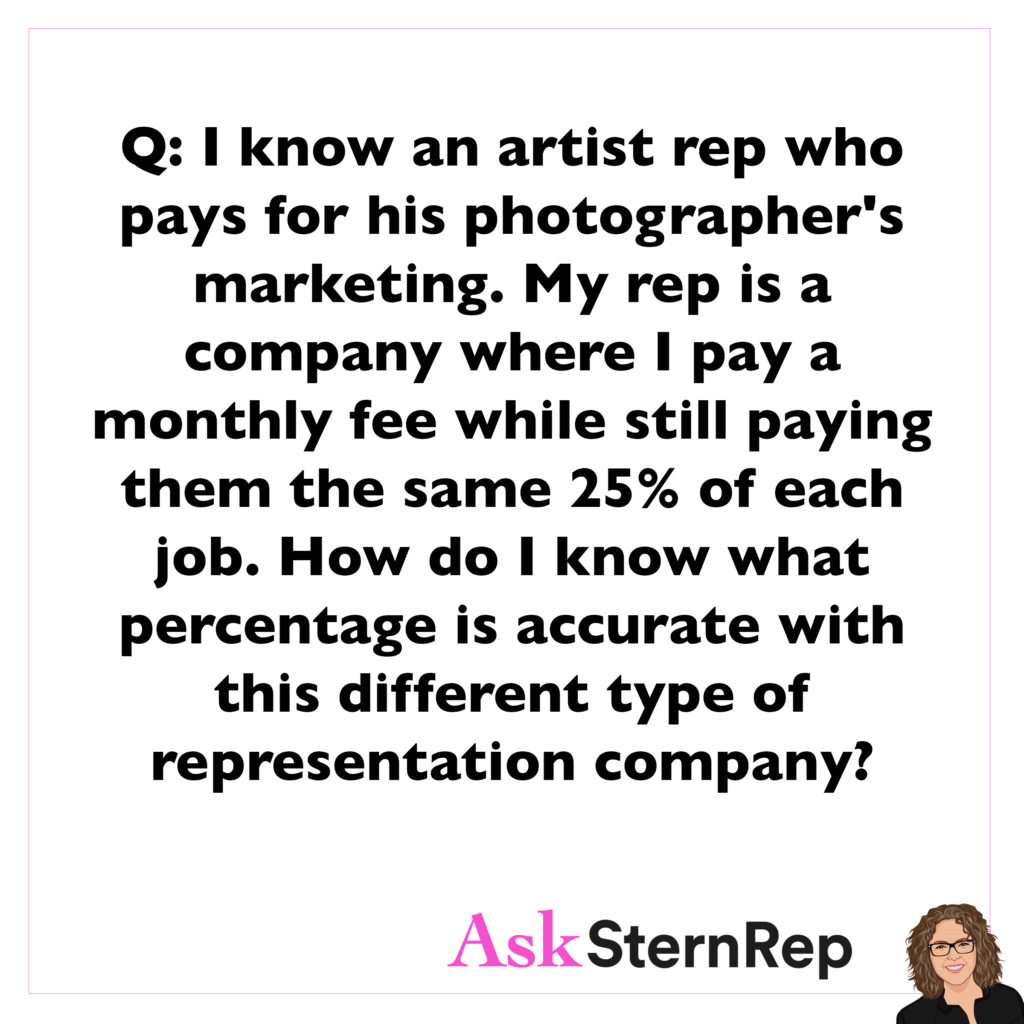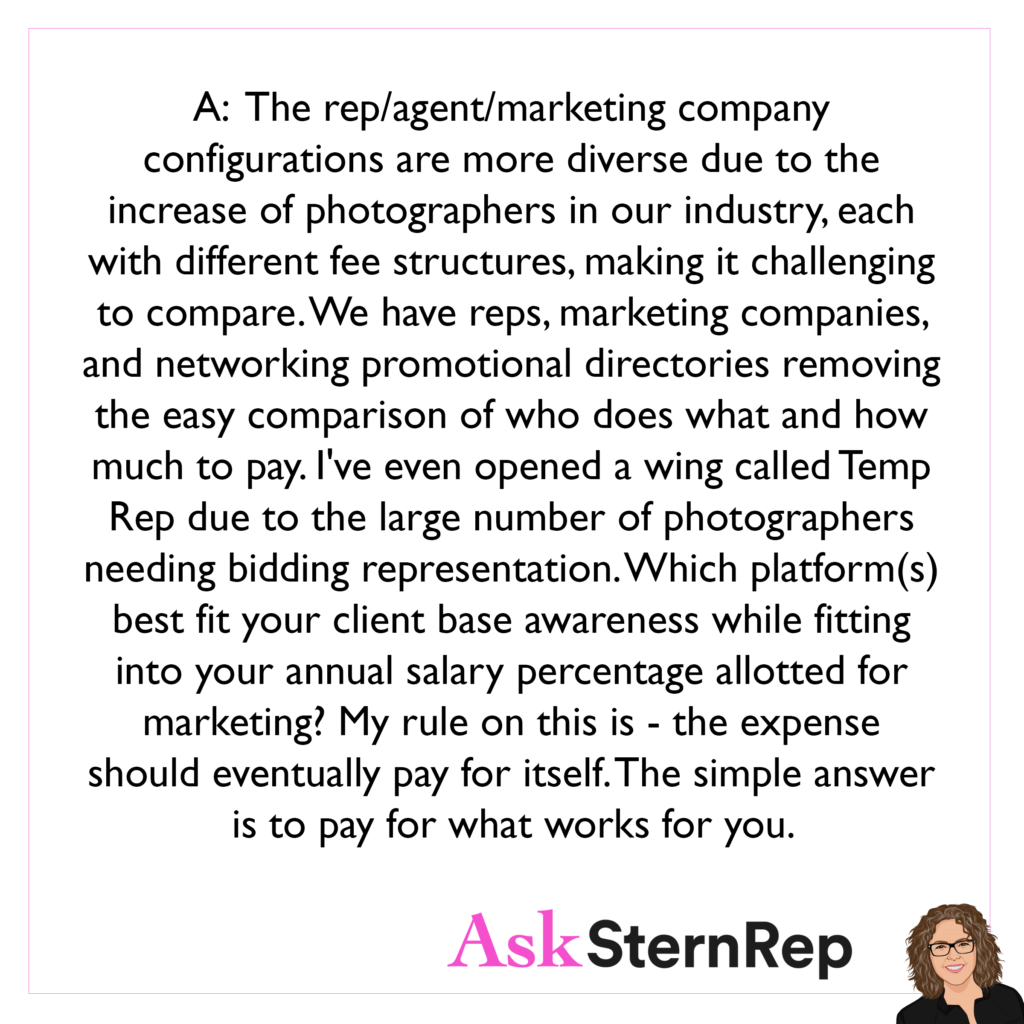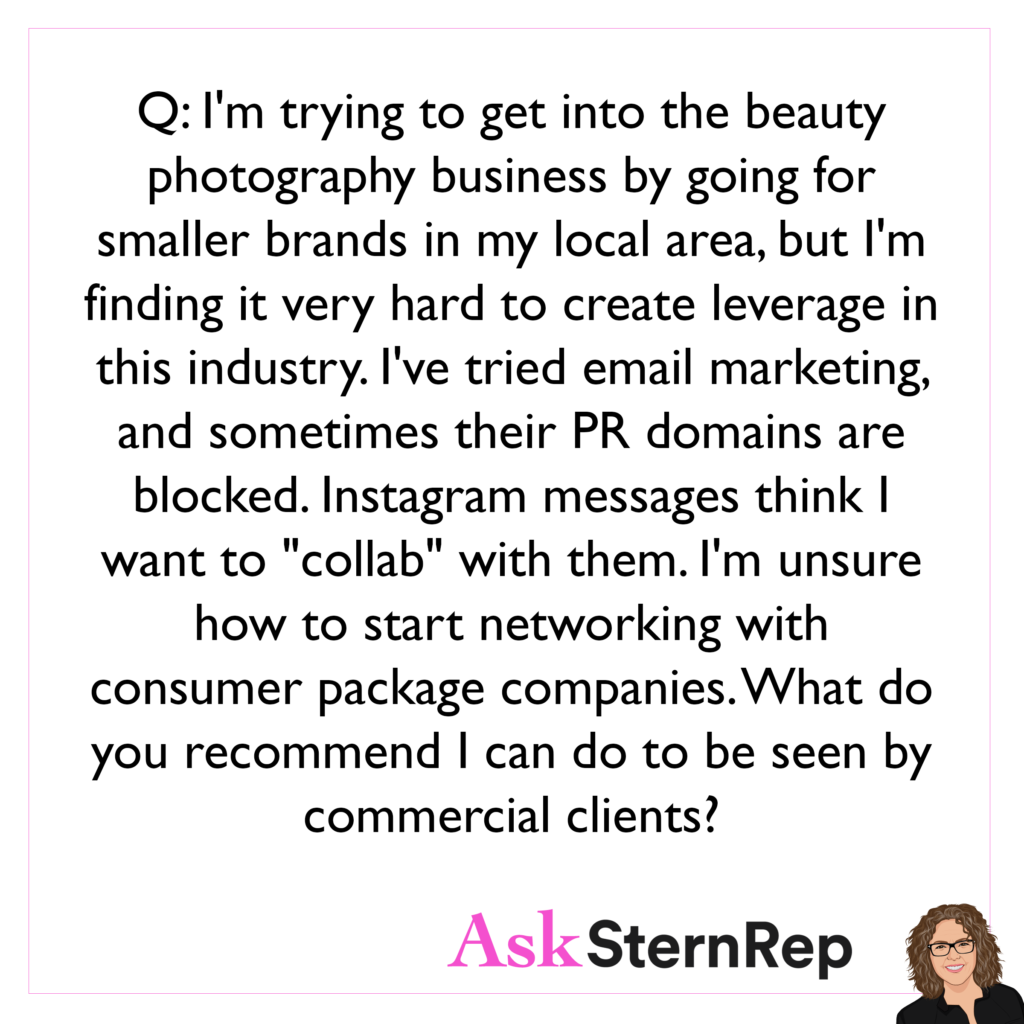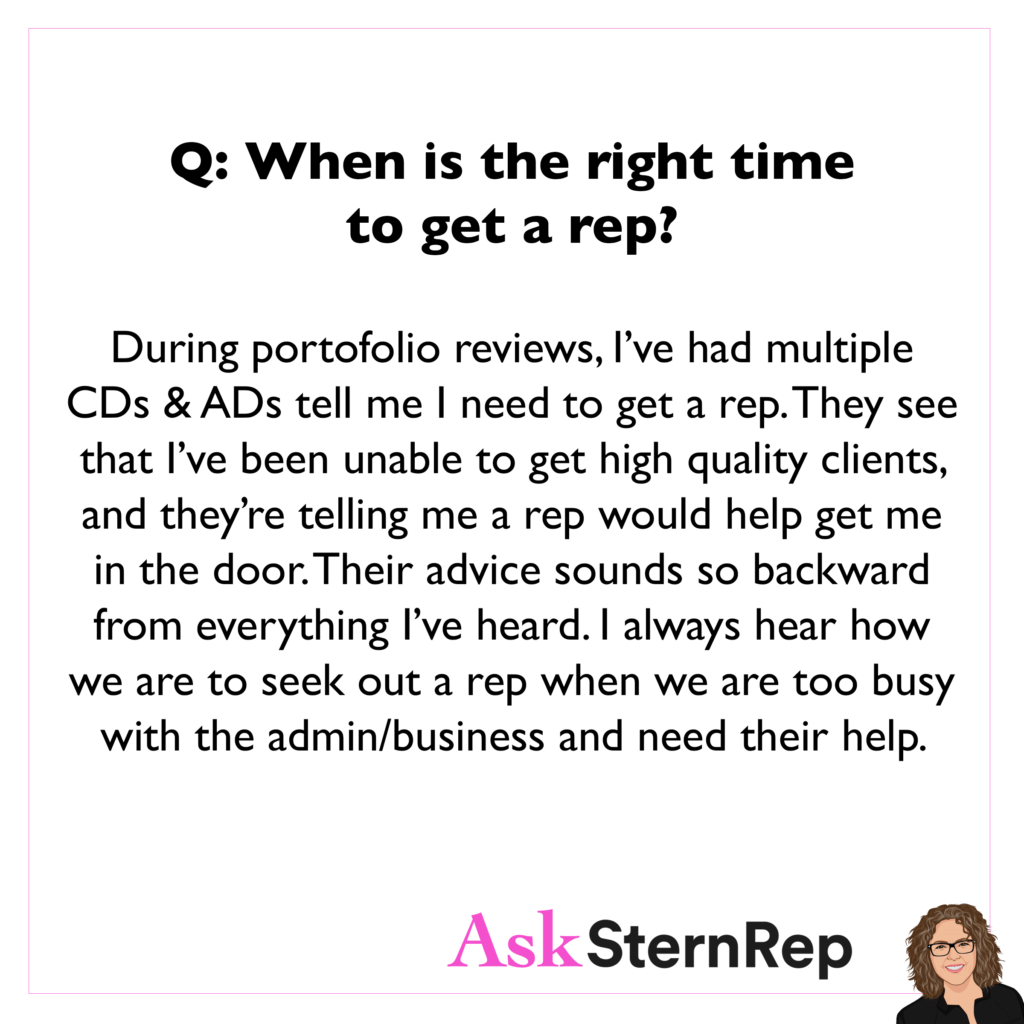
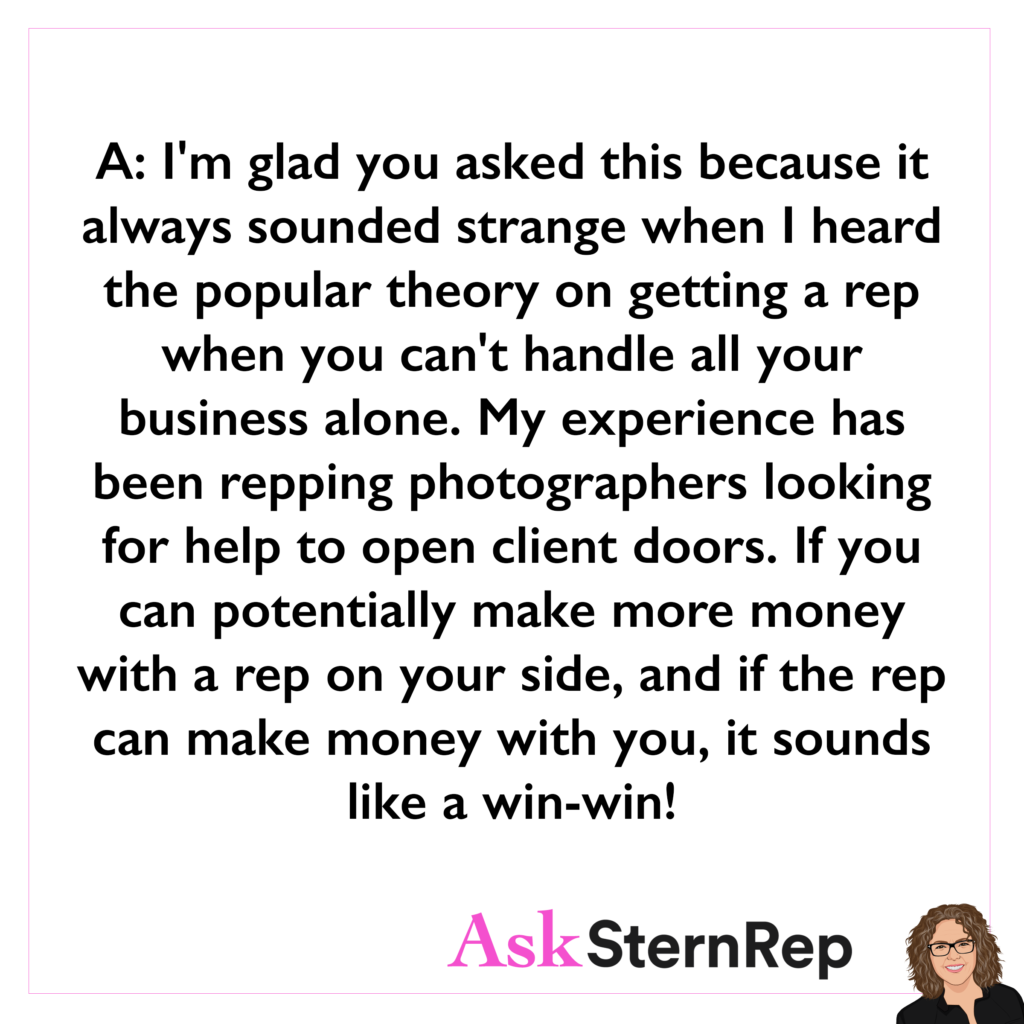
Q:
When is the right time to get a rep?
During portfolio reviews, I’ve had multiple CDs + ADs tell me I need to get a rep. They see that I’ve been unable to get high-quality clients, and they’re telling me a rep would help get me in the door. Their advice sounds so backward from everything I’ve heard. I always hear how we are to seek out a rep when we are too busy with the admin/business and need their help.
A:
I’m glad you asked this because it always sounded strange when I heard the popular theory on getting a rep when you can’t handle all your business alone. My experience has been repping photographers looking for help to open client doors. If you can potentially make more money with a rep on your side, and if the rep can make money with you, it sounds like a win-win!

